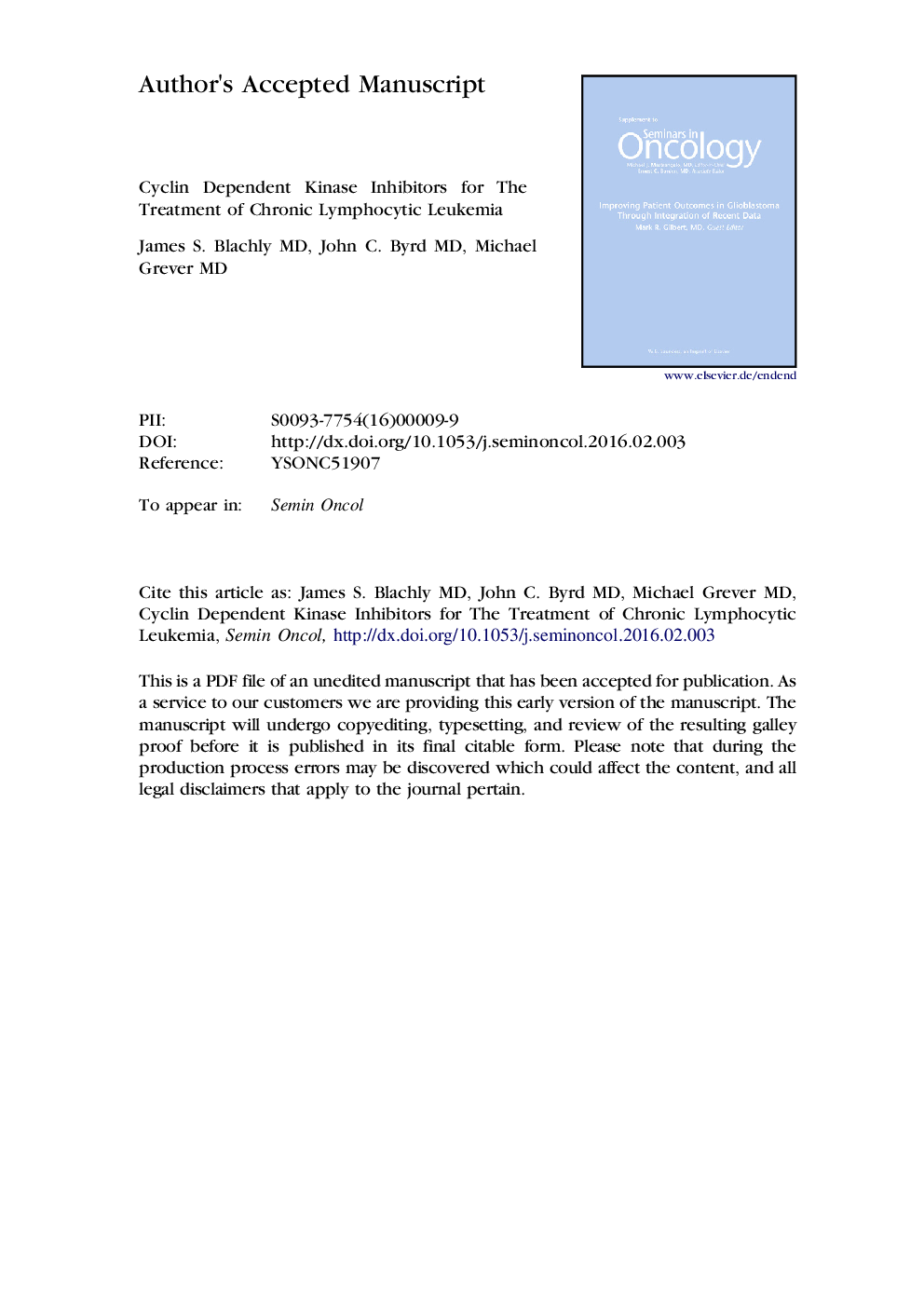| Article ID | Journal | Published Year | Pages | File Type |
|---|---|---|---|---|
| 2161751 | Seminars in Oncology | 2016 | 40 Pages |
Abstract
In the last 10 years, oncology has been transformed by the development and broad availability of small molecule therapies for cancer. Compounds have been and are being developed to target nearly every known relevant component of the cell's machinery. One class of compounds, the cyclin-dependent kinase (CDK) inhibitors, was originally conceived as an anticancer therapeutic based on the premise that as cancer is (in part) defined by loss of cell-cycle control, the interruption of cell cycle could arrest cancer growth. While CDKs do play critical roles in cell cycle, including in cancer, the study of CDK inhibitors in the relatively non-proliferative disease chronic lymphocytic leukemia (CLL) revealed alternate mechanisms both for CDKs, as well as for the role of CDK inhibitors in cancer therapy. In this review, we will consider three CDK inhibitors: alvocidib (flavopiridol), dinaciclib, and TG02. We will discuss their preclinical and clinical development for the treatment of CLL, and suggest that CDK inhibitors remain relevant in CLL, with potential utility in several scenarios.
Related Topics
Life Sciences
Biochemistry, Genetics and Molecular Biology
Cancer Research
Authors
James S. Blachly, John C. Byrd, Michael Grever,
